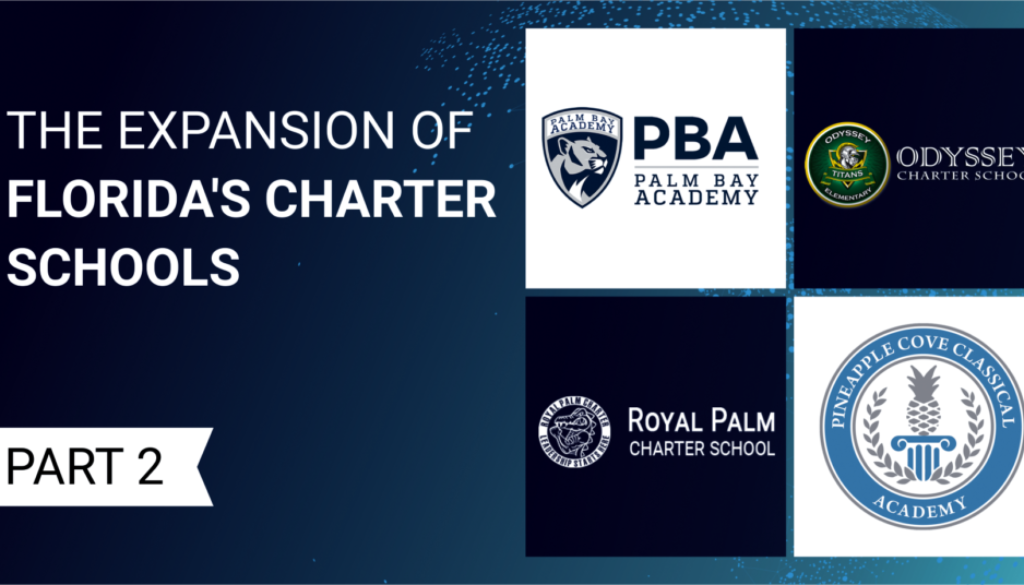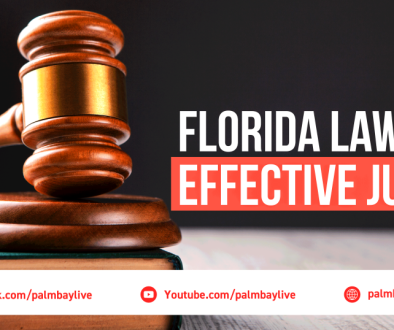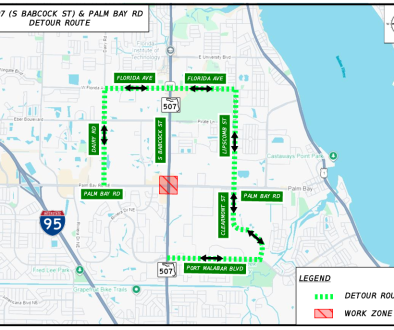Shifting Educational Funds from Public to Charter Schools in Florida
The Future of Charter School Funding
This article is the second installment of an investigative series on charter schools by Palm Bay Live. Stay tuned for subsequent parts, where we will delve deeper into the intricacies and impact of charter schools in Florida’s education system.
Governor DeSantis approved House Bill 1259 last year, which updated how charter schools receive capital outlay funds. This legislation allows for a reduction of funds previously allocated to traditional public schools’ capital expenditures, to now support charter schools. It sets out a phase-out of existing funding restrictions, allowing charter schools to access revenues from the discretionary 1.5 millage local tax. Charter schools must also commit to returning any publicly funded assets to the district in the event of closure.
Proponents argue that the law is a step toward ensuring that charter school students are not disadvantaged in terms of capital outlay funding, which has historically been lower per student compared to traditional public schools. They claim that this approach recognizes the evolving role of charter schools and ensures that funding is student-centered, following students to their chosen public educational institutions. Critics, however, say this shift may impose financial burdens on public school districts. They highlight the risk of diverting essential funds from schools that have longstanding public accountability and infrastructure requirements.
The law is part of a broader legislative effort, including other educational initiatives like HB 891, which pilots year-round schooling in five districts in the 2024-25 school year. This initiative aims to address learning loss and juvenile crime rates that rise with summer temperatures.
Charter Schools and the Battle Over Public Dollars
Funding for Florida’s charter schools, particularly through property taxes, has been a significant area of contention. A 2023 proposal that sparked debate would have required school districts to share local property-tax revenue with charter schools based on the schools’ proportionate share of total school district enrollment.
Charter schools have recently won significant funding battles. In one instance, a court ruled that charter schools in Palm Beach County are entitled to a cut of tax dollars from a property-tax increase approved by voters, which was initially intended for traditional public school safety and teacher pay improvements. In 2022, another appeals court ruled that charter schools are entitled to receive a share of property-tax money approved by voters.
Recently, the conversation around the allocation of these funds took a more contentious turn in Broward County. At the heart of this latest dispute is Manny Diaz, Jr., Florida’s Education Commissioner, who has been a prominent advocate for charter schools. During his tenure as a state lawmaker, Diaz was instrumental in shaping policies that have made Florida a fertile ground for charter school expansion, partly through significant campaign contributions from the school choice sector.
This advocacy has continued into his role as Education Commissioner, where he is now ensuring that charter schools receive millions in public funds — funds initially set aside for traditional public schools in Broward County. The crux of the matter dates back to a tax referendum approved by Broward voters in 2018, aimed at raising funds for school safety and teacher pay improvements. Legal and legislative changes since then have mandated that these funds be shared with charter schools, a move that has led to lawsuits from charter schools demanding their share.
State officials have taken a firm stance on the issue, asserting that Broward County Public Schools (BCPS) owes around $80 million to charter schools in the district. This claim has led to heightened tensions and legal battles, with BCPS arguing that such a payout could severely impact its budget. The state’s response has been unequivocal, with Diaz and the State Board of Education demanding compliance and threatening sanctions for non-compliance, underscoring the ongoing tug-of-war over public education funding in Florida.
Amid these financial disputes, BCPS is facing significant challenges due to a years-long loss in enrollment, with a decrease of 57,857 students since the 2004/05 school year. During the same period, charter school enrollments have seen a corresponding increase of 26,559 students. This decline has escalated financial pressures, leading to the “Redefining Our Schools” initiative aimed at addressing the issue of under-enrollment and inefficiencies across the district. Under the proposed plans, BCPS has presented a drastic step of closing three schools: Olsen Middle in Dania Beach, Oakridge Elementary in Hollywood, and Broward Estates Elementary in Lauderhill. Additionally, plans for grade reconfiguration at Pines Middle, Hollywood Central Elementary, and Sunland Park Academy, as well as public-private partnerships for Quiet Waters Elementary, Deerfield Beach Elementary, and Tedder Elementary, have been laid out as part of the district’s restructuring efforts.
In a significant shift in education funding, Governor Ron DeSantis signed House Bill 1 into law in 2023, dramatically expanding access to school vouchers across Florida. This legislation broadened school voucher access, which can impact the funding landscape for both charter and traditional public schools. By removing income and enrollment limitations, the bill extended voucher eligibility to nearly all Florida families, stirring concerns over the redirection of funds traditionally allocated to public schools.
The expanded school voucher program in Florida, as of 2023, allows all K-12 students to be eligible for private school scholarships, averaging around $7,700. This can cover tuition and other educational expenses like private tutoring. There’s also a provision for homeschooled students, limited to 20,000 this school year. Additionally, there’s a $750 transportation scholarship for public school students attending schools outside their neighborhood.




